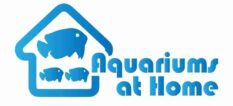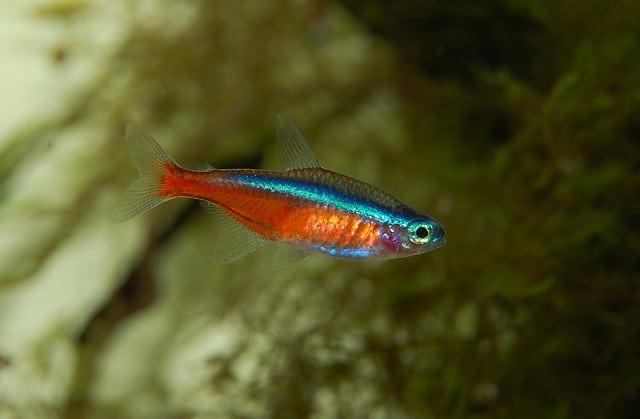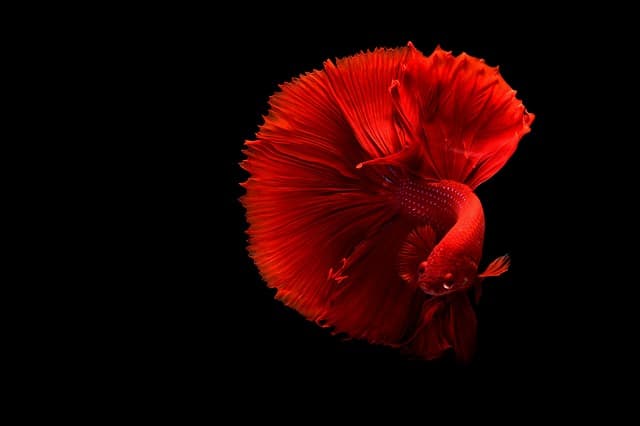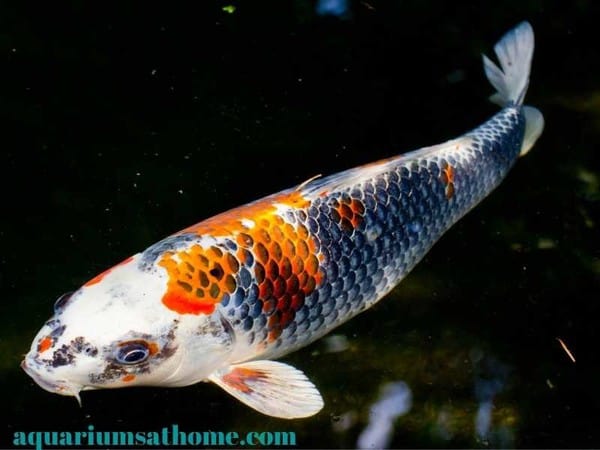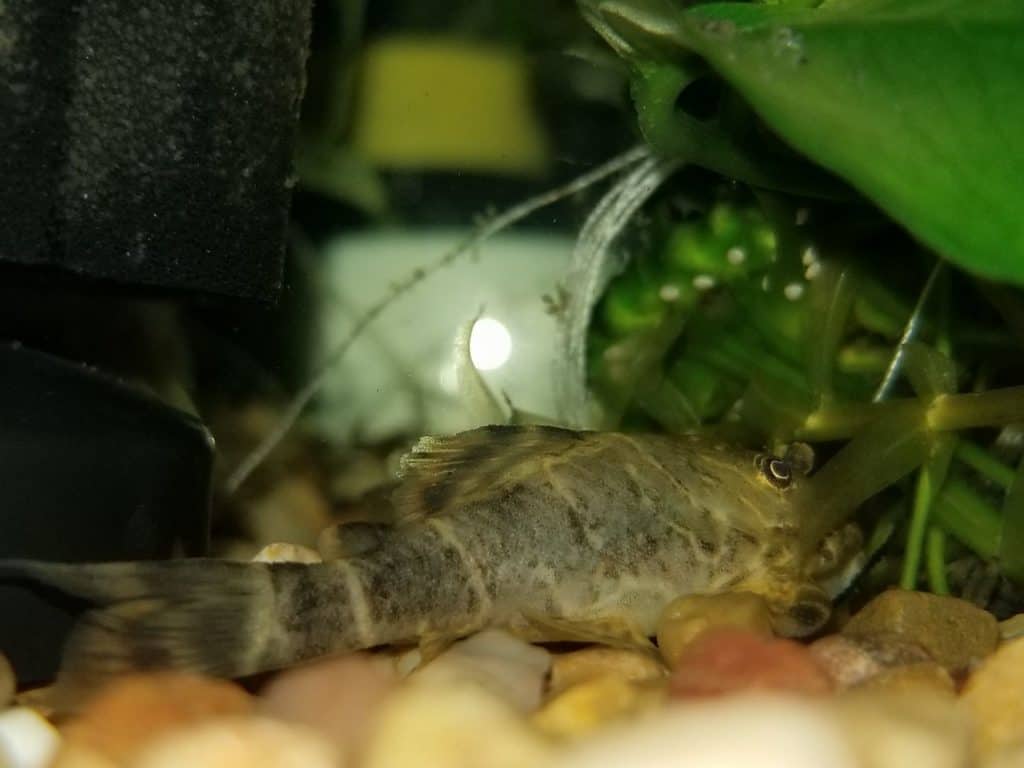If you’ve seen koi fish swimming in a pond, you know first-hand how massive they are! Not surprisingly, this species requires a lot of food to sustain itself. Perhaps you’re thinking of keeping koi fish and have questions about sustaining them. For example, if access to food is limited – such as during the winter or if you happen to be away on vacation in the summer – how long can koi fish go without eating?
In the summertime, koi fish can go about 2 weeks without eating. They can live off their large energy stores for up to 14 days at which time, they’ll nibble on algae and any microorganisms at the bottom of the pond. In the wintertime, koi fish can go months without eating while they’re in hibernation.
Now that you know koi fish can survive with no food for up to 14 days in the summer (and for months during the winter), let’s explore this topic together in more detail. We’ll learn if it’s possible for koi fish to starve to death, why koi sometimes refuse to eat, what food is best for this species, and how often they should be fed.
So, if you’re ready to learn more, then let’s dive deeper into the aquatic world of the larger-than-life koi carp fish!
How often should Koi Fish be Fed?
As you just learned, koi can go up to 2 weeks without eating in the summer. This means you don’t have to spend all summer feeding them every day. I wouldn’t recommend just feeding them every two weeks as you might run into some issues – dying, attacking smaller fish, etc.
It’s best to feed koi fish in captivity twice a day in the summer. This will ensure they receive the vital nutrients they need to live long, healthy lives. Be careful not to overfeed them as this may affect the water parameter and promote algae overgrowth. In the spring and fall, you should reduce feedings to once per day. This species is very hardy with big energy reserves and can go weeks without eating.
If you keep your koi fish outdoors during the winter, they’ll hibernate, so feeding isn’t necessary at this time. If you bring them indoors and put them in a tank, then feeding should be done once a day or every other day.
I have an interesting article on keeping koi in a fish tank. Make sure to check it out.
Can Koi Fish Starve to Death?
A koi fish could starve to death if not fed for weeks in the summertime. Provided the pond environment is healthy and there’s enough algae/plankton growing, this species will find something edible to sustain it. This species will even go so far as to shake-up the gravel at the bottom to unearth microorganisms such as arthropods, hydras, and protozoa.
Can You Overfeed Koi Fish?
Since koi fish are foragers and spend most of their time scavenging for food, it’s very easy to overfeed them if you’re not careful. They’ll eat all day long if there’s food available so you must be mindful and limit feedings to twice a day in the summer months. Signs of overfeeding include cloudy pond water, surface foam, and fish that are gasping for air at the surface and/or have lesions on their gills.
Do Koi Fish Eat Every Day?
Koi fish are scavengers and like to feed daily. For this reason, it’s recommended you offer them food at least twice per day in the summer months and then cut back to once a day in the wintertime. These fish are omnivores and like to forage along the gravel at the pond of their pond environment in search of microorganisms to feast on.
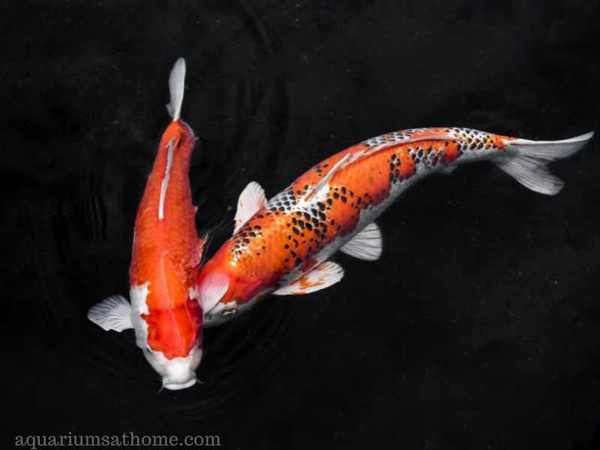
What do Koi Fish Eat?
Koi fish are omnivores and as such, eat both plant- and meat-based foods. In the wild, they often dine on algae, plankton, plant leaves, krill, insects, worms, tadpoles, small crustaceans and almost anything edible they can stir up along the gravel bottom. They’ll even eat tiny fish that fit into their mouths and can be swallowed almost whole!
In captivity, it’s best to feed koi fish a variety of foods including bloodworms, brine shrimp, fruits, and vegetables. Don’t offer anything that’s high in carbohydrates such as bread or pasta since they’re much harder to digest. Despite their ability to eat just about anything edible, koi fish will thrive on a protein- and nutrient-rich diet.
What Human Food do Koi Fish Eat?
Koi fish can eat just about anything people eat – this includes everything from seafood to leafy greens and whole grains. That’s not to say that all human food is good for koi fish. Items such as bread and pasta are hard on their stomachs and should be avoided. Instead, choose organic green options as well as protein-rich meat varieties.
Will Koi Fish Eat Other Fish when Hungry?
Though koi fish are gentle and peaceful by nature, they’re opportunistic feeders and as such, will eat smaller fish if they can easily fit into their mouths! As well, if their pond is overcrowded or they aren’t being fed enough, larger koi fish will feed upon the smaller ones for sustenance or simply to reduce competition for food.
Why are Koi Fish always Hungry?
Koi fish grow to massive lengths. The average size for an adult is between 24 and 36 inches long however, ‘jumbo’ koi can grow up to 52 inches! It takes a lot of food to sustain such girth, not to mention the fact that how much they eat is related directly to the temperature of their surrounding environment. In warmer weather, they’ll eat up to 4 times more per day than when its colder out.
Why are My Koi Fish Not Eating?
A drastic change to their aquatic environment is the typical reason why koi fish stop eating. Fluctuations in water temperature and/or pH as well as increased levels in toxins such as e. coli bacteria, nitrates, and ammonia can all affect your koi fish’s appetite. If you notice them refusing food, then it’s time to break out the water testing kit.
At What Temperature do Koi Fish Stop Eating?
Koi fish will cut back on food when the temperature of their pond drops to about 64 degrees Fahrenheit. During the winter season, it’s often recommended that you feed them every other day, if possible. Once they’re in hibernation mode, they no longer require daily feedings and will sustain themselves naturally by drawing on their energy stores.
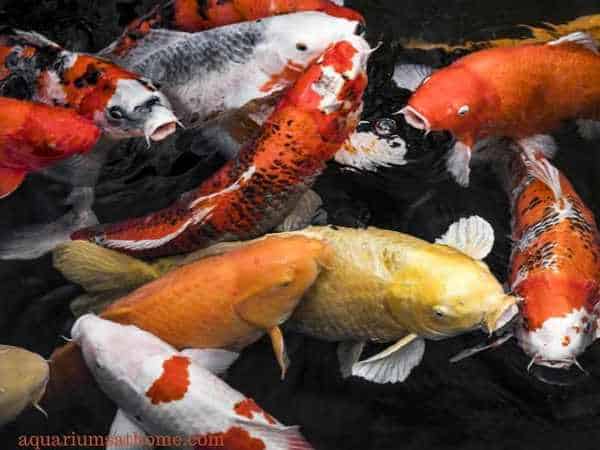
How to Feed Koi Fish During the Winter?
You don’t feed koi fish at all in the winter (when the temperature drops below 48 degrees Fahrenheit) since their metabolism slows down drastically and aren’t able to effectively digest protein-rich foods. Instead, when autumn approaches, you switch up their diet to be more plant-based and offer them fish food pellets which are designed to provide premium nutrition at colder water temperatures.
Check out these cold-water fish food pellets available online through Amazon.
Why do Koi Fish Die Suddenly?
The reason why koi fish die suddenly isn’t due to starvation, but rather a toxic environment. Poor water quality is the leading cause of koi fish death in captivity. Therefore, it’s imperative that your pond be equipped with a good filtration system. As well, you must do regular water tests and provide proper maintenance if you want your koi fish to live long, healthy lives.
Conclusion
In summation, koi fish can live for 2 weeks in the summer (and for months in the winter) without being fed because of their large food stores. During this time, they survive mainly on algae or microorganisms existing naturally in their pond. To thrive, however, they require a regulated feeding schedule consisting of both plant- and meat-based foods for balanced nutrition and optimal health.
I trust this article has answered your questions regarding koi fish and how long they go without eating. Thanks for reading and good luck with your aquarium hobby!
Related Posts
How Long Does It Take for Koi to Grow?
Why Do Koi Fish Lose Their Scales?
How Small Can a Koi Pond Be? (Is Bigger Better?)
